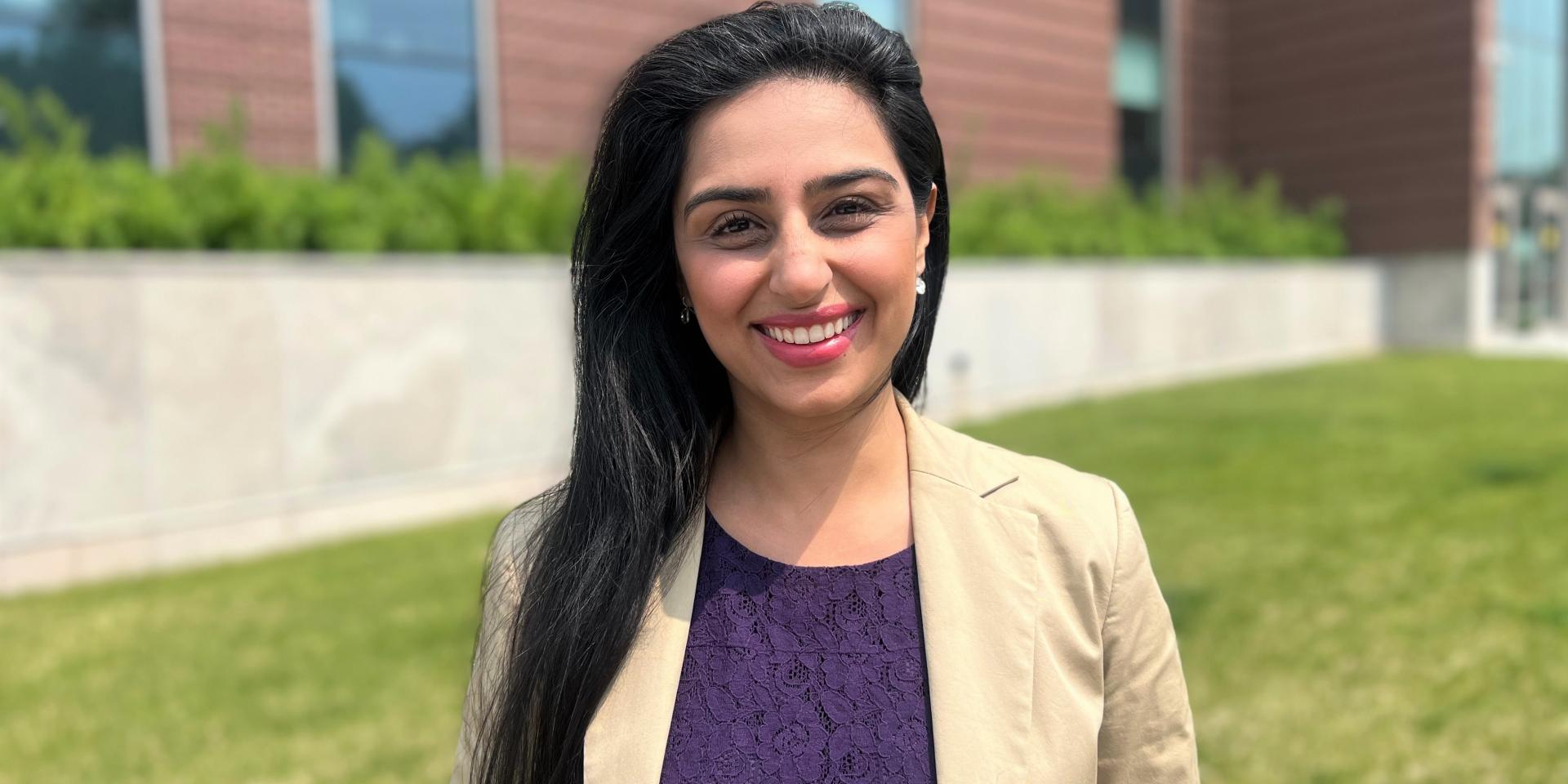#IamMGH tells the stories of our people. Meet Anita Roopani, Palliative Clinical Nurse Specialist at Michael Garron Hospital (MGH).“Growing up, I am grateful I got to spend a lot of time with my grandmother. She played a crucial role in my life, acting as a second parent providing care for me while my mom was at work. Our bond grew stronger with each passing day and I cherished the moments we shared together. However, during my high-school years at East York Collegiate, my world was shaken when I received the news of my grandmother's diagnosis: pancreatic cancer. As her condition progressed, she was admitted to MGH where she received many tests and treatments.
Determined to be by her side, I would walk to MGH after school. Those visits became an essential part of my routine and they allowed me to spend time with my grandmother, providing comfort and companionship during her challenging journey. It was during one of those after-school visits that a pivotal moment in my life occurred. A nurse on her care team asked me if I had thought about pursuing a career in nursing. She told me she had seen the level of care and knowledge I had about my grandmother’s health and that I would be a great fit for the job. Her advice stuck with me, inspiring me to pursue a career in nursing.
When I finished high school, I went on to complete a Bachelor of Science in Nursing at Toronto Metropolitan University. I then had the opportunity to work in many different areas in the health sector, including medicine, home and community care, critical care and palliative care. While working in critical care and managing the care of for those in critical conditions, I recognized the need to have advanced care planning and early goals-of-care discussions in the community.
After recognizing this need, I took on a role as a palliative pain and symptom management consultant, received my Hospice Palliative Care Nursing Certification from the Canadian Nurses Association and obtained a Masters of Education from University of Toronto. In 2016, I joined MGH and have been here ever since, working as a Palliative Clinical Nurse Specialist for the MGH Palliative Integrated Long-Term Care Program.
The goal of MGH’s Palliative Integrated Long-Term Care Program is to improve palliative and end of life care for LTC patients and families by building capacity and supporting frontline teams working in long-term care. In my role as Palliative Clinical Nurse Specialist, my days involve working alongside a palliative care physician to provide education and consultation to long-term care home residents, families and long-term care teams. When consulting with patients and families, it is important to ensure each individual receives quality palliative and end-of-life care as defined by the patient and their family.
In my role, I have witnessed firsthand the impact of providing holistic care to individuals with life-limiting conditions and their families. Palliative care goes beyond end-of-life care; it is an approach that focuses on improving the overall quality of life for patients facing serious illnesses such as Alzheimer's disease, dementia, chronic kidney disease and chronic obstructive pulmonary disease.
To ensure patients and families receive the highest quality of palliative care, effective communication, collaboration and advocacy are crucial. I work closely with interdisciplinary care teams at long-term care homes, acute care facilities, primary care providers and community agencies. By engaging in open and transparent communication, we can address the physical, psychological, social, religious and spiritual needs of long-term care home residents and their families. This may involve advocating for and participating in regional programs aimed at enhancing palliative care in long-term care homes or advocating for necessary equipment, such as a continuous infusion pump, to optimize symptom management.
Advocating for a patient may also involve engaging in open and honest conversations with the patient and/or their family about their preferences and wishes. These discussions not only help patients and their families understand the potential challenges ahead but also provide them with the tools to advocate effectively for themselves and/or their loved one's well-being. By exploring their beliefs, values and treatment goals, we can collaboratively develop a plan that aligns with the patient’s wishes.
Education also plays a vital role in my work. I facilitate palliative care education for interdisciplinary teams at long-term care homes and MGH, ensuring healthcare professionals have the knowledge and skills to determine appropriate goals of care. This may include having the team shadow a conversation I have with a patient and/or their caregiver or family, so eventually other members of that patient’s care team may also help lead palliative care initiatives with support from the program. They may then connect with me to share what went well during their conversations and identify areas they may need more support with.
I find inspiration in the words of Dame Cicely Saunders, founder of the modern hospice movement. ‘You matter because you are you and you matter to the end of your life. We will do all we can not only to help you die peacefully, but also to live until you die.’ These words resonate deeply with me and serve as a guiding principle in my practice.
Every individual's life is meaningful and it is our duty to support them throughout their journey, ensuring they experience comfort, dignity and a sense of purpose until the end.”
